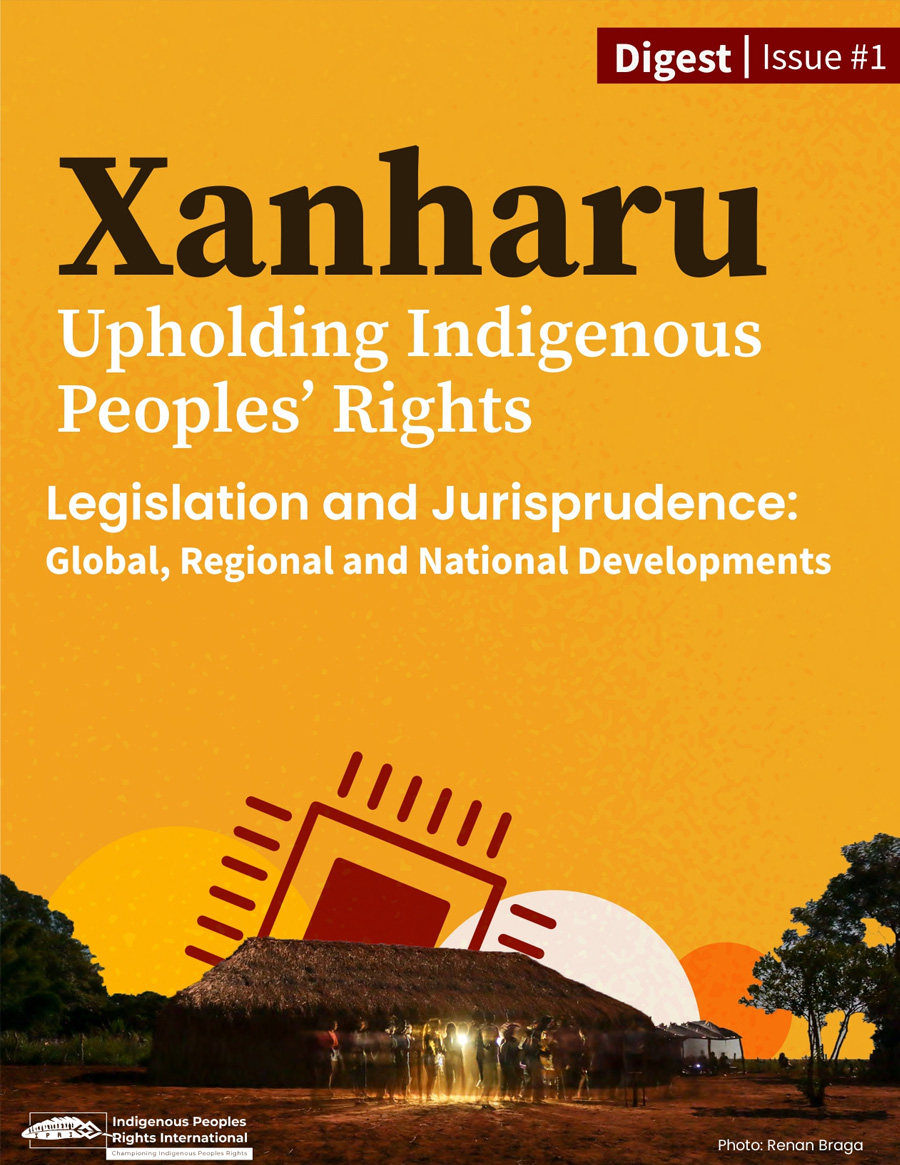The centuries of struggle by Indigenous Peoples around the world against colonization, forced assimilation and systemic discrimination have resulted in the adoption of the UN Declaration on the Rights of Indigenous Peoples (UNDRIP) by the UN General Assembly in September 2007. The UNDRIP sets the minimum international standards for the respect, recognition, and protection of the rights of Indigenous Peoples (art. 43).
Despite this milestone achievement of Indigenous Peoples, their rights continue to be violated in law and practice in many parts of the world. However, more and more legislation and jurisprudence affirming the rights of Indigenous Peoples, especially to their lands, territories, and resources, to self-determination and to their cultural heritage, are being issued by different authoritative bodies in line with the UNDRIP and with universal and regional human rights treaties.
IPRI is therefore issuing this Digest as a compilation of legislation and jurisprudence in relation to Indigenous Peoples' rights at the international level (UN system and perhaps others), at the regional level (regional human rights bodies), and at the national level (national courts). Among other things, the cases in the Digest illustrate EMRIP's conclusion that “many of the rights contained in the Declaration are already guaranteed by major international human rights instruments and have been given significant normative strength, including through the work of the treaty bodies, regional and national courts.” ¹
IPRI believes that sharing this information with Indigenous Peoples, their allies and others will drive increased awareness and understanding about Indigenous Peoples’ rights as an integral part of human rights law, where states have the duty to recognize, respect, protect and fulfill those rights in domestic law and practice. We hope it will also inspire policy makers, judges, prosecutors, lawyers and others to give increased attention to Indigenous Peoples' rights to eliminate systemic discrimination and social injustice committed against Indigenous Peoples. Finally, we hope it will also encourage and strengthen Indigenous Peoples' commitment and actions in advancing the realization of their rights in law and practice.
This Digest will be a regular publication of IPRI and will soon be integrated in the IPRI website with search functions.


